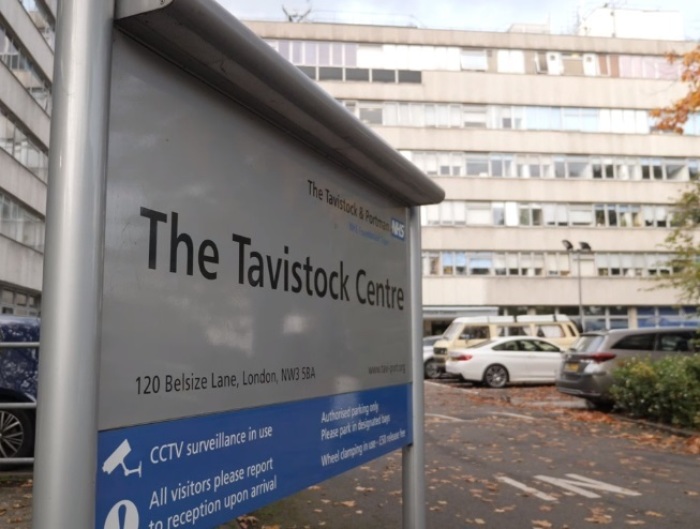Court hearing against UK gender clinic: Attorneys argue minors can't consent to puberty-blocking drugs

A major trial in the United Kingdom took place this week scrutinizing a gender clinic, and will determine if minors can legally consent to take puberty blockers and undergo other experimental gender medicine.
The much-anticipated judicial review of practices that have been occurring within the Tavistock & Portman NHS Trust, which is based in London and is the lone gender clinic for children in the nation, occurred Wednesday and Thursday.
According to the BBC Wednesday, attorneys for Keira Bell — a 23-year-old woman who identified as transgender as a teenager and has since desisted — and an unnamed mom of an autistic child who is presently on the waiting list to be treated at the clinic contended in court proceedings that pubertal-aged children are incapable of understanding the nature and effects of puberty-suppressing drugs and thus cannot agree to the controversial treatments.
Bell was treated at the clinic with puberty blockers and then went on to take cross-sex hormones. She also underwent a cosmetic double mastectomy and now says she was irreparably harmed.
She was initially referred to the gender identity service at age 14 after she read about transsexuals on the internet and came to believe she had been born in the "wrong" body. After only five appointments, she was referred for hormone injections to halt puberty, which induced artificial menopause.
Bell now believes that gender drugs likely foreclosed her fertility and urges that the prescription of puberty-blocking drugs to minors be ceased.
“There needs to be a stop to prescribing puberty blockers to children under 18 ... I am worried about [my ability to have] children. I want that option to be there,” she said.
The trial comes after months of increasing scrutiny over the medicalization of gender and recent political developments pushing back against key goals of transgender activists, specifically the government's rejection of proposed reforms to the Gender Recognition Act that would have permitted individuals to self-identify their sex on legal documents without a formal medical diagnosis of gender dysphoria. Last month, it was announced that the National Health Service would be reviewing its gender identity services and their internal protocols.
Jeremy Hyam, who is representing both claimants, said during the hearing: "The use of hormone blockers to address gender dysphoria does not have any adequate evidence base to support it."
He further explained that the repercussions of hormonal puberty blockade "on the intensity, duration and outcome of adolescent development is largely unknown."
"There is evidence that hormone blockers can have significant side effects, including loss of fertility and sexual function and decreased bone density," he said.
Bell said in a witness statement before that court that she made a hasty choice during her younger years amid an identity crisis.
"I made a brash decision as a teenager, as a lot of teenagers do, trying to find confidence and happiness, except now the rest of my life will be negatively affected," she said, adding that medicalized gender-transitioning was "a very temporary, superficial fix for a very complex identity issue."
By contrast, lawyers for the clinic maintained in a written submission that puberty suppressants have undergone extensive research, claiming that they are safe and reversible. Tavistock lawyers also said that checks and balances exist within the clinic, that they have administered the drugs successfully, and that they have given patients enough space to reflect prior to transitioning.
Fenella Morris, one of the attorneys, argued that the claimants intended to overhaul the established legal “Gillick competence” test, which holds that parental rights as it pertains to medical treatment end “when the child achieves sufficient understanding and intelligence to fully understand what is proposed,” The Guardian reported.
The Gillick contention, from which the competence phrase is derived, centers around a 1985 case that was decided in the House of Lords in Gillick v. West Norfolk and Wisbech Area Health Authority in which lawmakers debated whether or not an under-16 minor could be prescribed contraception by and with the discretion of a physician, without parental consent.
The crux of the current case centers on whether or not minors can give proper informed consent to life-altering medical treatments and practices. A ruling is expected at a later date.
Last summer, amid reports of skyrocketing numbers of girls being referred for treatment to the gender clinic, former clinician Kirsty Entwistle — who was on staff at the Gender Identity Development Service in Leeds until October 2018 — posted a public essay addressed to the director of the Tavistock clinic, detailing troubling practices inside its walls.
The open letter explained how children who had endured trauma in their early years were being set on a course toward gender-transitioning and medicalization “without having explored or addressed their early adverse experiences” and that many children who were either poor or victims of abuse and neglect were "minimized and dismissed" by the clinic.




























